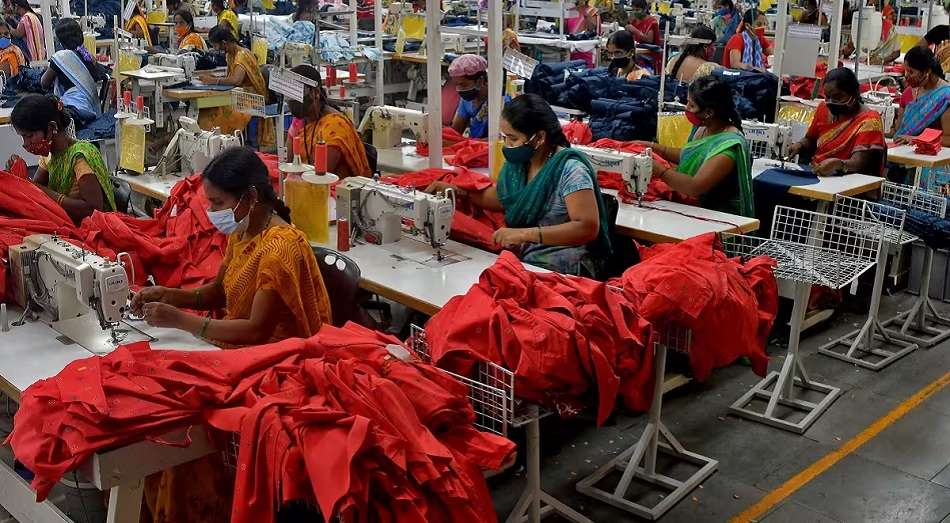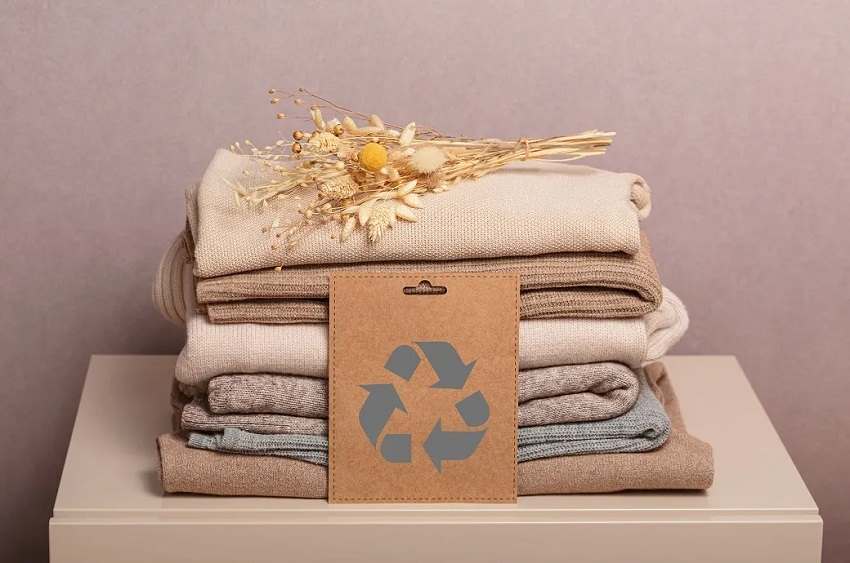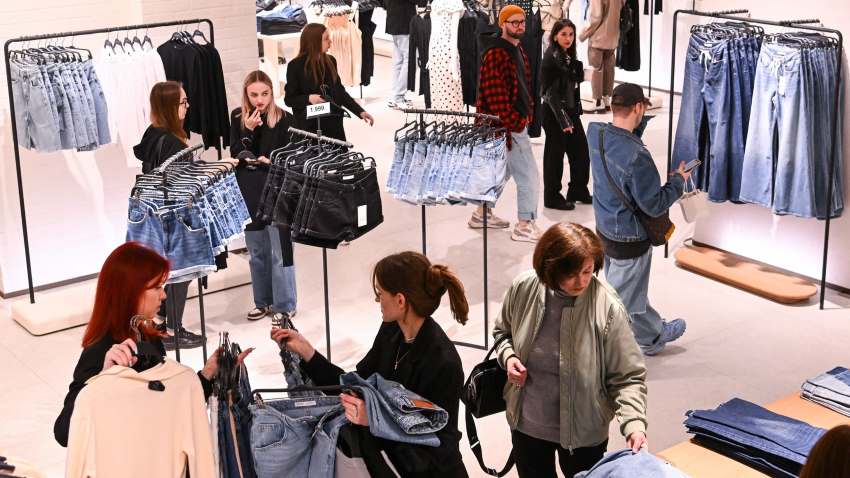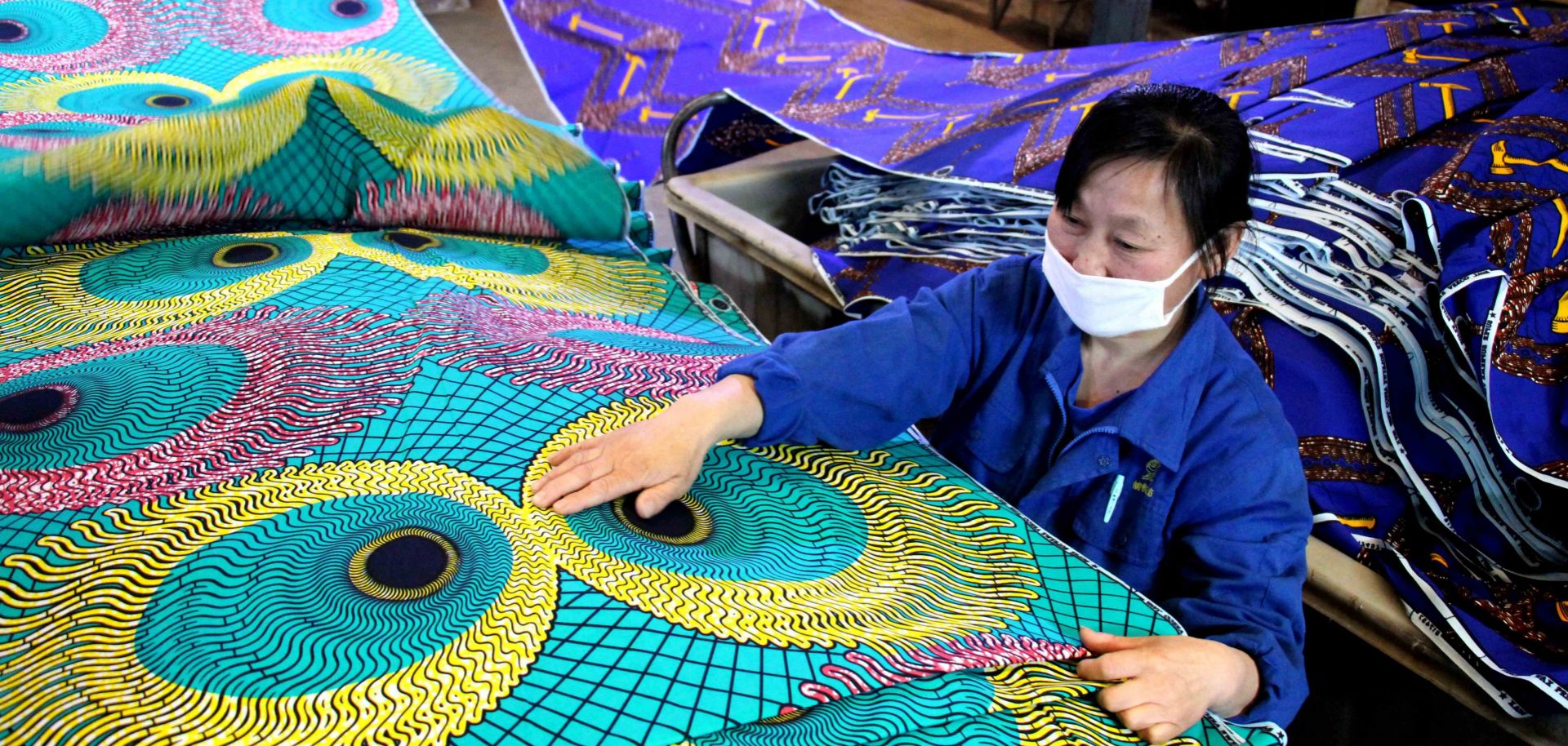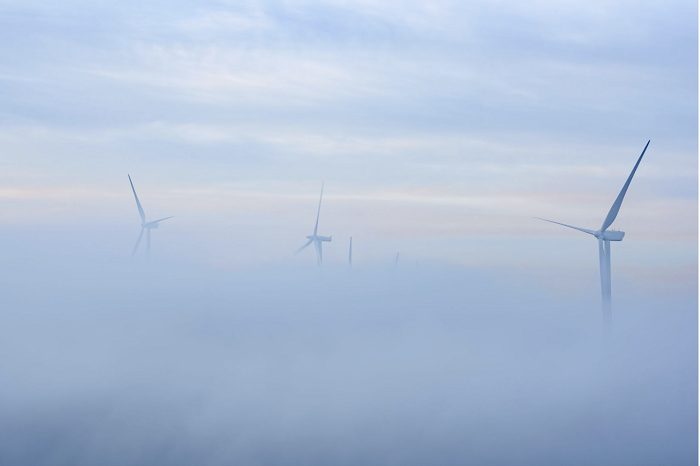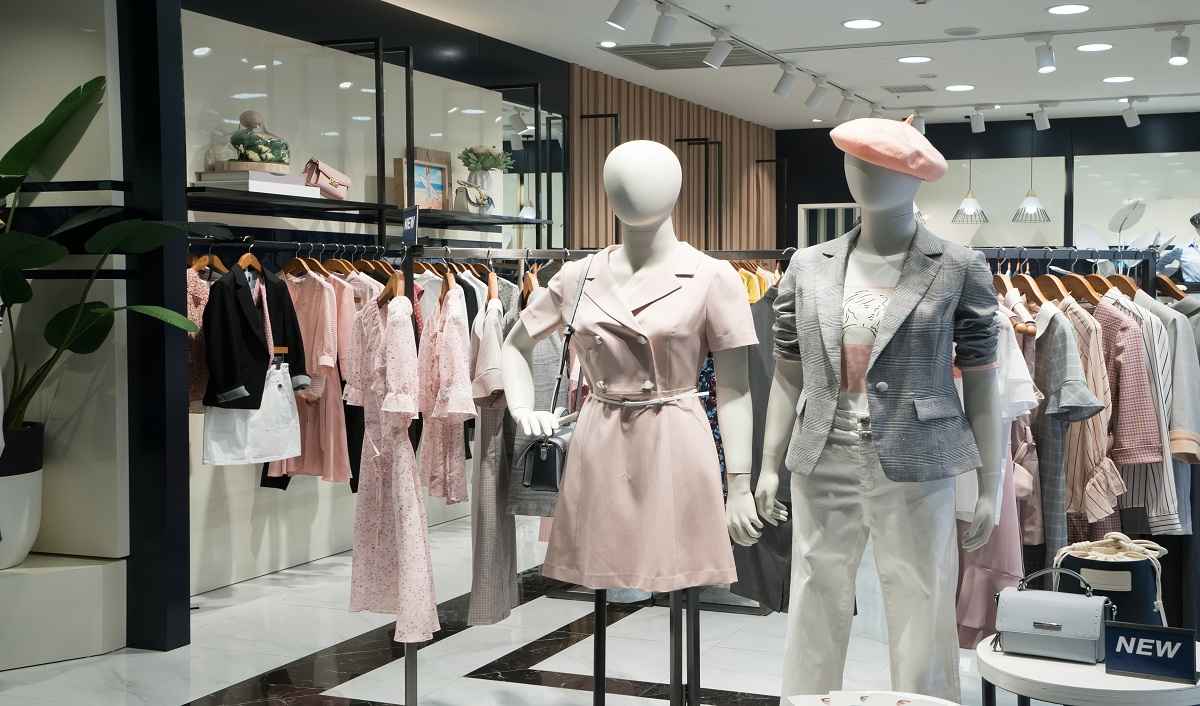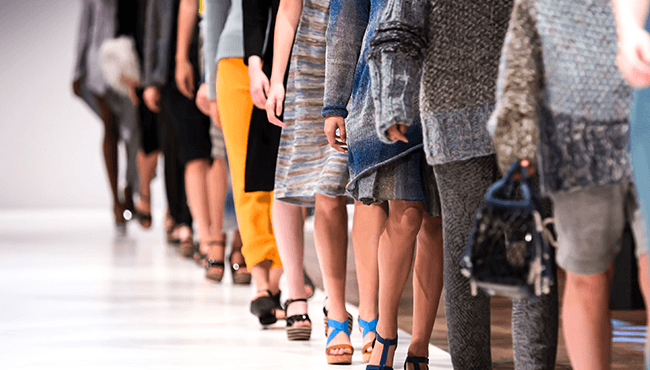FW
At the Global Fashion Summit, RE&UP introduced a recycling ecosystem poised to revolutionize the textile industry. Building on Sanko's century-old textile heritage, RE&UP has developed a patented technology capable of separating polycotton blends into pure cotton and polyester, making significant strides in sustainable fashion.
This innovative process combines advanced thermochemical, thermomechanical, and mechanical technologies, allowing it to recycle various feedstocks and expand accessible waste streams.
The resulting Next-Gen Cotton and Next-Gen Polyester match the performance of virgin materials, boasting robust fiber length and full decolorization while cutting water usage and carbon dioxide emissions by approximately 85 per cent.
RE&UP's technology is ready for immediate application in yarns, fabrics, and garments, operating from its facilities in Turkiye, with plans to expand across Europe and Asia. The company aims to recycle over 200,000 tons of textile waste annually by 2025 and scale up to over one million tons globally by 2030.
RE&UP is committed to promoting a more responsible and technologically advanced future for textiles and fashion, according to Chairman Fatih Konukoglu.
At the summit, RE&UP will participate in discussions on future fibers and global collaboration, emphasizing their commitment to driving sustainable change in the fashion industry.
Recently reopened, one of Japan's largest stores, Diesel Shibuya has unveiled a new retail concept under the creative direction of Glenn Martens.
Spanning the basement and the first floor, the redesigned store features striking graphic applications of Diesel red and industrial metal billboards.
Inspired by vintage Diesel advertisements reminiscent of those lining iconic American highways like Route 66, the store's decorative anchor sets a nostalgic tone. The walls, covered in riveted raw steel panels, evoke the raw spirit of the road and are complemented by artisanal, handmade resin posters adorning the walls and floors.
The store showcases the latest Diesel collections and exclusive items, including a special denim capsule collection and silver jewelry chokers. Dedicated to Diesel's core denim collection, the Redwall, stands out with its all-red lacquered walls contrasting against the bold monochrome interior.
The store houses the 'Upcycle Lab' on the B1 floor which stocks Diesel's second-hand clothes and other unused inventory. The store also offers quick fix services such as denim repair and hemming, and provides a denim repair and upcycling service for members.
Enhancing the retail experience, Renzo Rosso, Founder, Diesel has opened his restaurant, Cucina Diesel Farm within the store. Originally located in Marostica, northeastern Italy, this is the only Diesel store featuring the restaurant, which serves traditional Veneto regional cuisine and wines produced at Diesel Farm, a bio-diverse property Rosso has owned and protected for 30 years.
Furthermore, the Diesel Art Gallery, a renowned center for contemporary art since its inception in 2010, continues to showcase emerging artists. The first exhibition after the renovation features the works of Nanao Mitobe.
The flagship holding firm of the Aditya Birla Group, Grasim Industries registered a 15.54 per cent rise in consolidated net profit during Q4, FY24. Driven by a strong performance in its cement and financial services sector, the company’s profit increased to Rs 2,721.81 crore during the quarter from Rs 2,355.67 crore profit recorded in the same quarter of the previous year.
The company’s revenue from operations increased by 12.74 per cent to Rs 37,727.13 crore during the reviewed quarter from Rs 33,462.14 crore in the corresponding period of the previous fiscal year. The company highlighted that this was its highest consolidated revenue to date.
Despite facing an exceptional items charge of Rs 538 crore in the March quarter, the company’s consolidated earnings before interest, taxes, depreciation, and amortisation (EBITDA) grew by 27 per cent Y-o-Y to Rs 6,196 crore.
Total expenses surged by 11.18 per cent to Rs 33,750.46 crore while total income, including revenue from other sources, rose by 13.27 per cent to Rs 38,154.36 crore.
However, the company’s revenues from the Cellulosic Fibers segment declined to Rs 3,761.75 crore in the March quarter from Rs 3,764.06 crore in Q4 FY23. The company attributed this dip to the amendment in the MSME policy, which led to low inventory build-up in the textile value chain, and increased cheaper imports from China impacting the Cellulosic Fashion Yarn (CFY) business.
The revenues of the Chemicals business declined by 13.11 per cent to Rs 2,082.98 crore from Rs 2,397.47 crore a year ago, due to an over-supply situation affecting caustic soda prices in domestic markets. Nevertheless, the Chemicals business achieved its highest-ever caustic soda sales volume of 308 KT in Q4 FY24, up 8 per cent Y-o-Y.
In contrast, revenues of the Building Materials business increased by 11.25 per cent to Rs 20,918.55 crore, compared to Rs 18,803.03 crore in the same quarter last year. This segment includes UltraTech Cement, the newly launched Paints business, and the B2B e-commerce business Birla Pivot. The growth was driven by increased sales volumes in UltraTech and expansion in the B2B E-commerce business.
Revenue from the financial services segment, Aditya Birla Capital (ABCL), surged by 29.51 percent to Rs 10,483.77 crore from Rs 8,094.51 crore a year earlier. Revenues of other segments, including Textiles, Insulators, and Renewable Power, increased by 5.95 per cent to Rs 789.85 crore.
For the financial year ending March 31, 2024, Grasim Industries reported a 10.4 pre cent decline in net profit, totaling Rs 9,925.65 crore, compared to Rs 11,078.20 crore in FY 2022-23. However, revenue from operations for FY24 increased by 11.35 per cent to Rs 1,30,978.48 crore, up from Rs 1,17,627.08 crore the previous year. The company attributed this growth to strong performance across its diversified business portfolio, particularly in the Building Materials and Financial Services sectors.
Renowned for its authentic athletic apparel since 1919, Champion has unveiled its latest innovation; the Champion Weighted Hoodie, with an aim to promote mental health.
The weighted hoodie was invented after a survey conducted by the brand in 2022. on 19 to 35-year-olds revealed a desire for a weighted wearable product from the brand Champion by over 90 per cent of the consumers. Responding to this widespread need, the brand created this stylish and innovative hoodie for day-to-day wearable relief.
The weighted hoodie prototype represents another step in the brand’s pursuit of meaningful product creating a real impact for consumers. The hoodie is a perfect example of addressing mental health concerns and daily life stress. It is inspired by the use of weighted products for comfort by the brand’s consumers. Through this adaptive fashion, the brand aims to destigmatise mental health.
Weighing 8 lbs, this machine-washable hoodie is quilted with micro glass beads to provide the scientifically proven benefits of weighted pressure, similar to weighted blankets, which can reduce symptoms of stress and anxiety and support other mental health and neurodivergent conditions. The hoodie was developed in collaboration with Thera, a small business founded by Jenny Rosenberg, who began creating weighted wearable products during the pandemic. The prototype is undergoing testing with leading mental health experts, including Dr. Kerri McBee-Black, Head Adaptive Apparel Researcher and Professor at the University of Missouri.
In 2023, the Hanesbrands-owned Champion launched its first global brand campaign, titled ‘Champion What Moves You,’ redefining its mission to provide every individual a platform to pursue their passions and live their true purpose. For Champion, being a ‘Champion’ is about taking action and creating with intention, supporting important causes across communities, including mental health.
Developed in partnership with Thera, the Champion Weighted Hoodie weighs 8 lbs (3.6 kg) with balanced distribution across the arms, chest, back, and hood. It is made with premium quality, non-toxic, odor-free, machine-washable micro glass beads.
Easy to clean and maintain, the hoodie offers multiple sensory experiences and extended wear options with one side textured and quilted, and the other soft and smooth. Designed for those with sensory label issues, the hoodie aids in garment reversibility while retaining important legal and wash information. It acts as a focus agent for those with fidgeting tendencies.
In its second crowdfunding round launched this week, circular denim brand Mud Jeans aims to raise a capital worth €250,000 (approximately $270,600). The brand will use these funds to enhance awareness among customers, boost online sales, and expand its wholesale business. These growth plans of the company entail an investment of over €1 million this year.
To be hosted on the sharefunding platform Eyevestor, the crowdfunding will be initiated on a profit sharing basis. Consumers will start getting dividends within four to six years, as the Dutch brand will reinvest all earnings back into the company for growth. Investment opportunities range from a minimum of €250 ($270) to €25,000 ($27,060), with various benefits such as shopping credits, free jeans, and membership in Mud’s think tank. For investments exceeding €25,000, the brand will provide a custom proposal.
In its first crowdfunding round, Mud Jeans successfully raised €641,000 ($693,800) from 460 investors. If the second round is successful, the company plans to initiate a third round of funding.
Mud Jeans is known for its ‘lease a jeans’ program and aims to promote 100 per cent circular denim. This year, the brand has revamped its approach to manufacturing and selling jeans, strengthened its management team, and improved its product range. The current collection includes popular styles like barrel jeans, wide-leg jeans, maxi skirts, and coordinates. In May, the company also launched a bolder branding strategy and a new, consumer-friendly website.
Mud Jeans aims to achieve revenues worth € 25 million by 2030. By then, the company plans to expand its retail presence from 210 to 780 stores and increase its annual sales of jeans from 43,000 to 360,000, all made from 100 percent recycled denim.
US-based fashion brand Guess aims to incorporate half of its mainline apparel product portfolio under the Guess Eco label by 2025, and by 2030, it plans for 75 per cent of its mainline denim offerings to be a part of Guess Eco.
For approximately five years, Guess Europe collaborated with Lenzing to integrate Tencel™ lyocell and Lenzing™ Ecovero™ viscose into the Guess Eco collections.
Tencel™ lyocell fibers have been incorporated into denim items such as jeans, shirts, and dresses, while Ecovero™ viscose fibers are used in dresses, tops, T-shirts, sweatshirts, and pullovers. To date, Guess has sold roughly 2 million items containing Ecovero™ and 800,000 garments with Tencel™ lyocell across its 1,608 stores in 100 countries. To inform consumers about these sustainable materials, Guess utilises Lenzing’s E-Branding service to include hangtags on products, including samples.
Lenzing’s fibers are integral to the latest Spring/Summer 2024 Guess Eco collection. Recently, Guess Europe and Lenzing partnered for an influencer event in Berlin on April 25 to promote this line. The event attracted over 15 influencers and press members to raise awareness and visibility for these sustainable materials. An on-site exhibition, ‘The Journey of Guess Eco,’ showcased garments made from Tencel™ lyocell and Ecovero™ viscose. During the event, Manuela Gesslbauer, Senior Regional Marketing Manager, led a 20-minute panel discussion about Lenzing’s fibers.
This event marks a significant milestone in the partnership, which began with educational initiatives. Sylvia Happel, Head - Business Development Europe, and Carlo Covini, Business Development Europe, initially presented to about 80 Guess employees about the benefits and applications of Lenzing’s fibers. This foundational education set the stage for the successful integration of these materials into Guess products.
Expanding its store network in the city, leading D2C men's fast fashion brand, Snitch has launched its second exclusive brand outlet in Vadodara, Gujarat. The store was launched on May 19, 2024 at the EVA Mall in the city. The brand had launched its first store on April 17, 2024, at Neptune Trion/
With these inaugurations, Snitch now boasts six exclusive stores across India, including two each in Surat and Bengaluru. Featuring the latest in men's apparel and accessories, these stores offer patrons a chance to immerse themselves in a world of style and sophistication.
The stores enable the brand to interact with thousands of customers and learn about their unique tastes and preferences. Coupled with its extensive experience in men's fashion, these insights allow the brand to create more relevant and compelling offerings for its customers, says Siddharth Dungarwal, Founder & CEO, Snitch.
Committed to expanding its offline presence, Snitch plans to open multiple stores in urban India. The brand has already garnered a loyal following for its trendy designs, high-quality products, and sustainability efforts. Its expansion into new markets highlights its growing popularity and the increasing demand for products.
The Istanbul Textile Machinery (ITM) trade fair, commencing in early June, will feature a significant presence from German companies, with nearly 90 exhibitors, predominantly VDMA members. These exhibitors will showcase advancements across various machinery sectors, emphasizing spinning, nonwovens, weaving, knitting, and finishing.
Key themes at the event include digitalization and automation, which remain crucial in addressing industry challenges. Additionally, sustainability has evolved into a vital economic and social consideration, focusing on efficiency in energy, raw materials, water, and recycling.
Turkey stands as a critical market for German textile machinery manufacturers. In 2023, exports of textile machinery and accessories from Germany to Turkey amounted to approximately 350 million euros, reinstating Germany as Turkey's primary supplier after three years of China's dominance.
The fair is strategically significant, given Turkey's geographical advantage as Europe's gateway, offering an experienced workforce and proximity to key European markets. The event also attracts visitors from the Middle East, Central Asia, and North Africa, enhancing its regional importance.
Harald Weber, Managing Director of the VDMA Textile Machinery Association, underscores ITM’s role in aligning with the EU's strategy for sustainable and circular textiles, highlighting the increasing focus on recycling.
VF Corporation, a global leader in lifestyle apparel, footwear, and accessories, has appointed Paul Vogel as Chief Financial Officer, effective July 8, 2024. Vogel, formerly CFO at Spotify Technology SA, will replace Matt Puckett, who is stepping down. Vogel's tenure at Spotify saw significant growth, with the company’s revenue and user base more than doubling, alongside improved operating margins and free cash flow.
Bracken Darrell, VF’s President and CEO, expressed enthusiasm for Vogel's appointment, highlighting his extensive operational and financial expertise. Darrell emphasized Vogel’s ability to drive profitable growth as VF aims to reset and expand its brand portfolio. Vogel expressed his excitement about joining VF, noting the company's strong brand portfolio, talented team, and innovative culture as key factors for future growth and shareholder value creation.
Darrell also acknowledged Matt Puckett’s 23-year contribution to VF, praising his leadership and partnership during Darrell's transition to CEO. VF Corporation looks forward to leveraging Vogel’s experience to strengthen its financial positioning and growth trajectory.
Deckers Brands expects net sales to grow by approximately 10 per cent to around $4.7 billion in fiscal year 2025.
The company reported a remarkable 18.2 per cent surge in net sales, reaching $4.288 billion for fiscal year 2024, driven by double-digit growth in its Hoka and Ugg brands. The California-based company saw its net sales increase by 12.6 per cent to $2.432 billion, while direct-to-consumer sales soared by 26.5 per cent to $1.855 billion for the 12 months ending March 31.
Domestically, sales rose by 16.8 per cent to $2.864 billion, and international sales climbed by 21.1 per cent to $1.424 billion. Hoka led the charge with a 27.9 per cent growth, generating $1.807 billion in net sales. Ugg followed with a 16.1 per cent increase, reaching $2.239 billion. These gains were partially offset by declines in other brands: Teva saw a decrease of 18.9 per cent to $148.5 million, and Sanuk experienced a 33 per cent drop to $25.4 million. Meanwhile, the company's other brands segment, primarily composed of Koolaburra, rose by 5.9 per cent to $67.9 million.
With an 18 per cent revenue growth, Deckers achieved record results during fiscal year 2024, showcasing the brand’s commitment to exceptional profitability, says Dave Powers, President and CEO.
Both Hoka and Ugg boast a robust pipeline of innovative products designed to captivate global consumers. Looking ahead, the brand’s talented teams aim to capitalise on the long-term opportunities for these iconic brands.

